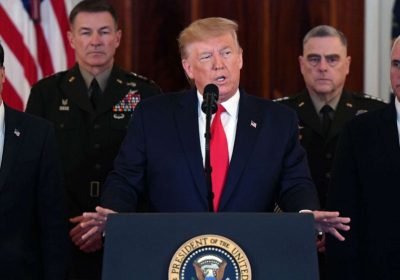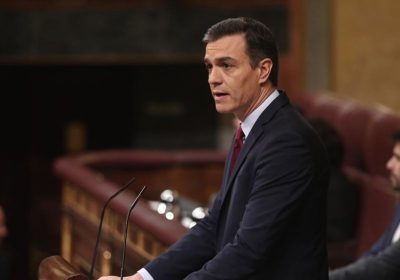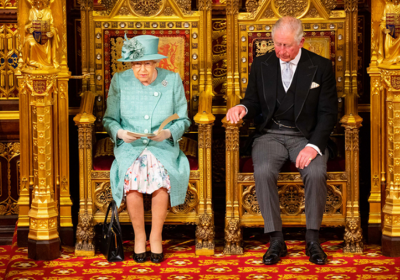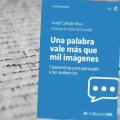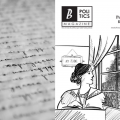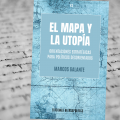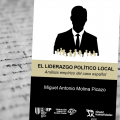It is said by eminent censors of the press that this debate will yield about thirty hours of talk, and will end in no result. I have observed that all great questions in this country require thirty hours of talk many times repeated before they are settled. There is much shower and much sunshine between the sowing of the seed and the reaping of the harvest, but the harvest is generally reaped after all.
I was very much struck with what happened on the first night of the debate. My hon. Friend the Member for Cork, in the opening portion of his address, described the state of Ireland from his point of view, and the facts he stated are not and cannot be disputed. He said that the Habeas Corpus Act had been suspended for three years in his country—that within the island there was a large military force, amounting, as we have heard to-night—besides 12,000 or more of armed police—to an army of 20,000 men—that in the harbours of Ireland there were ships of war, and in her rivers there were gunboats; and that throughout that country—as throughout this—there has been and is yet considerable alarm with regard to the discontent prevalent in Ireland.
All that is quite true; but when the noble Lord the Chief Secretary opened his speech, the first portion of it was of a very different complexion. I am willing to admit that to a large extent it was equally true. He told us that the condition of the people of Ireland was considerably better now than it was at the time of the Devon Commission. At the time of the Devon Commission the condition of that country had no parallel in any civilized and Christian nation. By the force of famine, pestilence, and emigration, the population was greatly diminished, and it would be a very extraordinary thing indeed if with such a diminution of the population there was no improvement in the condition of those who remained behind. He showed that wages are higher, and he pointed to the fact that in the trade in and out of the Irish ports they had a considerable increase, and though I will not say that some of those comparisons were quite accurate or fair, I am on the whole ready to admit the truth of the statement the noble Lord made. But now it seems to me that, admitting the truth of what my hon. Friend the Member for Cork said, and admitting equally the truth of what the noble Lord said, there remains before us a question even more grave than any we have had to discuss in past years with regard to the condition of Ireland.
If—and this has been already referred to by more than one speaker—if it be true that with a considerable improvement in the physical condition of the people—if it be true that with a universality of education much beyond that which exists in this island—if it be true that after the measures that have been passed, and have been useful, there still remains in Ireland, first of all, what is called Fenianism, which is a reckless and daring exhibition of feeling—beyond that a very wide discontent and disloyalty—and beyond that, amongst the whole of the Roman Catholic population, universal dissatisfaction—and if that be so, surely my hon. Friend the Member for Cork—one of the most useful and eminent of the representatives of Ireland—is right in bringing this question before the House. And there is no question at this moment that we could possibly discuss connected with the interest or honour of the people that approaches in gravity and magnitude to that now before us. And if this state of things be true—and remember I have said nothing but what the hon. Member for Cork has said, and I have given my approval to nothing he has said that was not confirmed by the speech of the noble Lord—if this be true, surely all this great effect must have some cause.
We are unworthy of our position as Members of this House, and representatives of our countrymen, if we do not endeavour at least to discover the cause, and if we can discover it, speedily to apply a remedy. The cause is perfectly well known to both sides of the House. The noble Lord, it is clear, knows it even from the tenor of his own speech—he spoke of the question of the land, and of the Church. The noble Lord the Member for King’s Lynn . . . referred to an absentee aristocracy and an alien Church. I would not say a syllable about the aristocracy in this matter; if I had to choose a phrase, I would rather say an absentee proprietary and an alien Church.
What is the obvious remedy which for this state of things has been found to be sufficient in every other country? If I could do so by any means that did not violate the rights of property, I should be happy to give to a considerable portion of the farmers of Ireland some proprietary rights, and to remove from that country the sense of injustice, and the sense—the strongest of all—of the injustice caused by the existence of an alien Church. Just for a moment look at the proposition the noble Lord is about to submit to the House. It is very like the Bill of last year. I will not enter into the details, except to say that he proposes, as he proposed then, that the Government should lend the tenant-farmers of Ireland sums of money, by which they would make improvements, which sums of money were to be repaid by some gradual process to the Government authorities. He proposes that the repayment should be spread over a considerable number of years—I do not know the exact number, and it is not of importance for my argument. These tenant-farmers are very numerous—perhaps too numerous, it may be, for the good of the country—but there they are, and we must deal with them as we find them. The number of them holding under 15 acres is 250,000; holding between 15acres and 30 acres, 136,000; holding over 30 acres, 158,000—altogether there are more than 540,000 holders of land. It is to these 540,000 land-holders or occupiers that the noble Lord proposes to lend money, on the condition that they make certain improvements, and repay after a certain number of years the sums advanced to them. I think I am right in saying that there is no limitation in the Bill as to the smallness of the holding to which the advance of money will be refused; and therefore the whole 540,000 tenants will be in a position to come to the Government, or to some Commission, or to the Board of Works, or to some authority in Ireland, and ask for money to enable them to improve their farms.
The House will see that if this plan is to produce any considerable result, it will be the source of a number of transactions such as the Government have not had to deal with in any other matter; and I expect that the difficulties will be very great, and that the working out of the plan with any beneficial results will be altogether impossible. What I ask the House is this—if it be right of the noble Lord, to enable him to carry out his plan, to ask the House to pass a measure like this—to lend all these tenants the money for improvements to be repaid after a series of years, would it not be possible for us by a somewhat similar process and by some step farther in the same direction, to establish to some extent—I am not speaking of extending it all through Ireland—a farmer proprietary throughout the country? If it be right and proper to lend money to improve, it surely may be proper, if it be on other grounds judicious, to lend money to buy.
∗ ∗ ∗ ∗ ∗
Now, I am as careful as any man can be, I believe, of doing anything by law that shall infringe what you think and what I think are the rights of property. I do not pretend to believe, if you examine the terms strictly, in what is called the absolute property in land. You may toss a sixpence into the sea if you like, but there are things with respect to land which you cannot, and ought not, and dare not do. But I do not want to argue the question of legislation upon that ground. I am myself of opinion that there is no class in the community more interested in a strict adherence to the principles of political economy, worked out in a benevolent and just manner, than the humblest and poorest class in the country. I think they have as much interest in it as the rich, and the House has never known me, and so long as I stand here will never know me, I believe, to propose or advocate anything which shall interfere with what I believe to be, and what if a landowner I would maintain to be, the just right of property in the land.
But, then, I do not think, as some persons seem to think, that the land is really only intended to be in the hands of the rich. I think that is a great mistake. I am not speaking of the poor—for the poor man, in the ordinary meaning of the term, cannot be the possessor of land; but what I wish is, that farmers and men of moderate means should become possessors of land and of their farms. About two centuries ago, two very celebrated men endeavoured to form a constitution for Carolina, which was then one of the colonies of this country in America. Lord Shaftesbury, the statesman, and Mr. Locke, the philosopher, framed a constitution with the notion of having great proprietors all over the country, and men under them to cultivate it. I recollect that Mr. Bancroft, the historian of the United States, describing the issue of that attempt and its utter failure, says: “The instinct of aristocracy dreads the moral power of a proprietary yeomanry, and therefore the perpetual degradation of the cultivators of the soil was enacted.†There is no country in the world, in which there are only great landowners and tenants, with no large manufacturing interest to absorb the population, in which the degradation of the cultivating tenant is not completely assured.
I hope that hon. Members opposite, and hon. Gentlemen on this side who may be disposed in some degree to sympathize with them, will not for a moment imagine that I am discussing this question in any spirit of hostility to the landowners of Ireland. I have always argued that the landowners of Ireland, in their treatment of this question, have grievously mistaken not only the interests of the population, but their own. I was told the other day by a Member of this House, who comes from Ireland, and is eminently capable of giving a sound opinion upon the point, that he believed the whole of Ireland might be bought at about twenty years’ purchase; but you know that the land of England is worth thirty years’ purchase, and I believe a great deal of it much more,—and it is owing to circumstances which legislation may in a great degree remove that the land of Ireland is worth at this moment so much less than the land of England. Coming back to the question of buying farms, I put it to the House whether, if it be right to lend to landlords for improvements, and to tenants for improving the farms of their landlords, to those who propose to carry on public works, and to repair the ravages of the cattle plague, I ask whether it is not also right for them to lend money in cases where it may be advantageous to landlords, and where they may be very willing to consent to it, to establish a portion of the tenant-farmers of Ireland as proprietors of their farms.
Now, bear in mind that I have never spoken about peasant proprietors. I do not care what name you give them; I am in favour of more proprietors, and some, of course, will be small and some will be large; but it would be quite possible for Parliament, if it thought fit to attempt anything of this kind, to fix a limit below which it would not assist the owner to sell or the purchaser to buy. I believe that you can establish a class of moderate proprietors, who will form a body intermediate between the great owners of land and those who are absolutely landless, which will be of immense service in giving steadiness, loyalty, and peace to the whole population of the island. The noble Lord the Chief Secretary, knows perfectly well at what price he could lend that money, and I will just state to the House one fact which will show how the plan would work. If you were to lend money at 3½ per cent., in thirty-five years the tenant, paying 5 per cent., would have paid the whole money back and all the interest due on it, and would become the owner of his farm; and if you were to take the rate at which you have lent to the Harbour Commissioners, and to repair the ravages of the cattle plague, which is 3¼ per cent., of course the whole sum would be paid back in a shorter period. Therefore, in a term which in former times was not unusual in the length of leases in Ireland, namely, thirty-one years, the tenant purchasing his farm, without his present rent being raised, would repay to the Government the principal and interest of the sum borrowed for that purpose, would become the owner of his farm, and during the whole of that time would have absolute fixity of tenure, because every year he would be saving more and more, adding field to field, and at the end of the time he would be the proprietor of the soil.
Let not the House imagine that I am proposing to buy up the whole of the land. I am proposing only to buy it in cases where men are willing to sell, and to transfer it only in cases where men are able and willing to buy, and you must know as well as I that there will be many thousands of such cases in a few years. Every Irish proprietor opposite . . . must know perfectly well that amongst the tenantry of Ireland there is a considerable sum of saved money not invested in farms. Well, that saved money would all come out to carry into effect transactions of this nature; and you will find the most extraordinary efforts made by thousands of tenants to become possessors of their farms by investing their savings in them, by obtaining it may be the assistance of their friends, and by such an industrious and energetic cultivation of the soil as has scarcely ever been seen in Ireland. I said there were landlords willing to sell, and there and cases in which, probably, Parliament might insist upon a sale—for instance, the lands of the London Companies. I never heard of much good that was done by all the money of the London Companies. I was once invited to a dinner by one of these Companies, and certainly it was of a very sumptuous and substantial character, but I believe that, if the tenants of these Companies were proprietors of the lands they cultivate, it would be a great advantage to the counties in which they are situated. I come then to this: I would negotiate with landowners who were willing to sell and tenants who were willing to buy, and I would make the land the great savings-bank for the future tenantry of Ireland. If you like, I would limit the point to which we might go down in the transference of farms, but I would do nothing in the whole transaction which was not perfectly acquiesced in by both landlord and tenant, and I would pay the landlord every shilling he could fairly demand in the market for the estate he proposed to sell.
Well, I hope every Gentleman present will acquit me of intending confiscation, and that we shall have no further misunderstanding upon that point. I venture to say to the noble Lord that this is a plan which would be within compass and management, as compared with that laid down in his Bill, if it worked at all, and I believe that it would do a hundred times as much good, in putting the farmer upon the footing of a holder of land in Ireland. What do hon. Gentlemen think would become of an American Fenian if he came over to Ireland and happened to spend an evening with a number of men who had got possession of their farms. I remember my old friend Mr. Stafford, in the country of Wexford, whom I called upon in 1849, who had bought his farm and had built upon it the best farm-house which I saw in the whole South of Ireland, and who told me that if all the tenantry of Ireland has security for their holdings—he was and old man, and could not easily rise from his chair, though he made an effort to do so—“If they had the security that I have,†said he, “we’d bate the hunger out of Ireland.†If the Fenian spent his evening with such men as these, and proposed his reckless schemes to them, not a single farmer would listen to him for a moment. Their first impression would be that he was mad; their second, perhaps, that the whisky had been too strong for him; and it would end, no doubt, if he persisted in his efforts to seduce them from their allegiance to the Imperial Government, by their turning him off the premises, though perhaps, knowing that he could do no harm, they might not hand him over to the police.
The other day I passed through the county of Somerset, and through villages that must be well known to many Gentlemen here—Rodney-Stoke and Drayford, I think they were called—and I noticed a great appearance of life and activity about the neighbourhood. I asked the driver of the carriage which had brought me from Wells what was the cause of it. “Why,†he said, “don’t you know that is the place where the great sale took place?†“What sale?†I asked. “Oh! the sale of the Duke’s property.†“What Duke?†“The Duke of Buckingham. Did you never hear of it? About fifteen years ago his property was sold in lots, and the people bought all the farms. You never saw such a stir in the world.†He pointed out the houses on the hillside which had been built to replace old tumble-down tenements, the red soil appearing under the plough, and cultivation going on with such general activity as had not been witnessed till within these last few years. The appearance of these villages was such as must strike every traveller from another part of the country, and it was produced by simple means. The great estate of an embarrassed Duke had been divided and sold off; he had not been robbed; the old miserable hovels of the former tenants had been pulled down, and new life and activity had been given to the whole district. If you could have such a change as this in Ireland, you would see such a progress and prosperity that gentlemen would hardly know the district from which they came.
∗ ∗ ∗ ∗ ∗
If the landowners had been a little wiser we might not have had before us to-night the difficulty that now perplexes us. Suppose, for example, they had not been tempted to coerce or to make use of the votes of their tenants; suppose they had not been tempted to withhold leases—undoubtedly the condition of Ireland would have been far superior to what it now is. My hon. Friend the Member for Westminster has some scruples, I believe, on the question of the ballot, but I believe even he would not object to see that admirable machinery of election tried in that country. Do hon. Gentlemen think it not necessary? I was talking, only two days ago, to a Member of this House who sat on one of the Irish election committees—the Waterford committee, I think—and he said: “We could not unseat the Members, though the evidence went to show a frightful state of things; it was one of the most orderly elections they have in that country—only three men killed and twenty-eight seriously wounded.†After all, we may smile, and some of you may laugh at this, but it is not a thing to be laughed at. It is a very serious matter, but it exists in no country in the world where the ballot is in operation.
If you were to try that mode of election in Ireland it would have two results: it would make your elections perfectly tranquil, and at the same time it would withdraw from the landowner—and a most blessed thing for the landowner himself this would be—it would withdraw from him the great temptation to make use of his tenant’s vote for the support of his own political party; and if that temptation were withdrawn, you would have much more inducement to grant leases to many of your tenants, and you would take a step highly favourable, not to the prosperity of your tenants only, but to your own prosperity and your own honour. Now, Sir, I shall say no more upon that question except this, that I feel myself at a disadvantage in making a proposition of this nature to a House where landowners are so numerous and so powerful, but I have disarmed them in so far that they will see that I mean them no harm, and that what I propose is not contrary to the principles of political economy; and that if Government is at liberty to lend money for all the purposes to which I have referred, Government must be equally at liberty to lend money for this greater purpose; and, further, I venture to express my opinion, without the smallest hesitation or doubt, that if this were done to the extent of creating some few scores of thousands of farmer proprietors in Ireland, you would find that their influence would be altogether loyal; that it would extend around throughout the whole country; that whilst you were adding to the security of Government you would awaken industry in Ireland from its slumber, and you would have the wealth which you have not had before, and, with wealth, contentment and tranquillity in its train.
Now, Sir, it may appear egotistical in me to make one remark more, but I think if the House will not condemn me I shall make it. Last year you did, under the leadership of the right hon. Gentleman, accept a proposition which I had taken several years of trouble and labour to convince you was wise. On Wednesday last, only two days ago, by an almost unanimous vote you accepted a proposition with regard to another matter, exactly in the form in which six or seven years ago I had urged you to accept it. You in this House recollect when Mr. Speaker had to give the casting vote, amidst vast excitement in the House, on the miserable question of Church Rates; but now, on Wednesday last, you accepted that Bill almost without opposition; and I presume that, except for the formality of a third reading, we have done with the question for ever. Now if you would kindly, I ask it as a favour—if you would kindly for a moment forget things that you read of me which are not favourable, and generally which are not true, and if you would imagine that though I have not an acre of land in Ireland, I can be as honestly a friend of Ireland as the man who owns half a county, it may be worth your while to consider for your own interest, the interests of your tenants, the security of the country from which you come, for the honour of the United Kingdom, whether there is not something in the proposition that I have made to you.
Now, Sir, perhaps the House will allow me to turn to that other question which, on the authority of the noble Lord the Chief Secretary for Ireland, and the noble Lord the Member for King’s Lynn, and indeed on the authority of the Prime Minister himself, is considered the next greatest—perhaps I ought to have said the greatest—question we have to consider in connection with Irish affairs; I mean the Irish Church question. What is it that is offered upon this matter by the Government? The noble Lord himself said very little about it, but he is not easy upon it; he knows perfectly well, and cannot conceal it, that the Irish Church question is at the root of every other question in Ireland. The noble Lord the Member for King’s Lynn said also that it was, along with the land, the great and solemn question which we had to discuss, and . . . he turned round almost with a look of despair, and implored somebody to come and tell us what ought to be done on this Irish question. And the Prime Minister himself, in speaking of it, called it and “Alien Church.†Bear that phrase in mind. It is a strong phrase, a phrase we can all understand, and we know that the right hon. Gentleman is a great master of phrases—he says a word upon some subject; it sticks; we all remember it, and this is sometimes a great advantage. “Alien Church†is the name he gives it; and now, what does the noble Lord, acting, no doubt, under the direction of his Colleagues and the Prime Minister, offer upon this question? He rather offered a defence of it; he did not go into any argument, but still, at the same time, he rather defied anybody to make an assault upon it; he believed that it would not succeed, and that it was very wrong; but what does he really propose? Only this: to add another buttress in the shape of another bribe. He says that he will make an offer to the Roman Catholic hierarchy and people of Ireland—some say that the people do not want it, and that the hierarchy do want it, but I say nothing about that, because I hope the Catholic people of Ireland are at least able to defend themselves from the hierarchy, if the hierarchy wish to cripple them too much—he says he will endow a Roman Catholic University in Ireland. As the noble Lord and on with his speech he touched upon the question of the Presbyterian Regium Donum, and spoke of it, I think, as a miserable provision for the Presbyterians of the North of Ireland; and evidently, if he had had the courage, the desperate courage to do it, he would have proposed, whilst he was offering to endow a new Roman Catholic University, to increase or double the Regium Donum. The noble Lord does not express any dissent from this, and I rather think he wishes that it were safely done. The object of this, and what he would like to have said to the hon. Gentleman about him who came from Ireland to represent the Roman Catholic population, and to the Presbyterians of the North of Ireland, was this: “If you will continue to support the Protestant Church in Ireland and the Protestant supremacy, we will endow you (the Roman Catholics) a University, really, if not professedly, under clerical rule; and as to you (the Presbyterians), we will double your stipend by doubling the amount of the Regium Donum.â€
Now, why do you offer anything? Why is it we are discussing this question? Why did the noble Lord think it necessary to speak for three hours and twenty minutes on the subject? Because the state of Ireland is now very different from the state which we have sometimes seen, and very different, I hope, from that which many of us may live to see hereafter; because Ireland has a certain portion of its population rebellious, has a larger portion disloyal and discontented, but has a still larger portion dissatisfied with the Imperial rule. Now I must say—I hope the noble Lord will not think I am saying anything uncivil—but I must say that his proposition appears to be at once grotesque and imbecile, and I think at the same time—though I do not like to use unpleasant words—that to a certain extent it must be held to be . . . not only very wrong, but very dishonest. At this moment it seems to find no favour on either side of the House, although I can understand the Catholic Members of the House feeling themselves bound to say nothing against it, and perhaps, if it came to a division, to vote for it; but I believe there is not a Catholic Member on this side of the House who could in his conscience say that it was right in him to accept this proposition as a bribe that he should hereafter support Protestant supremacy.
∗ ∗ ∗ ∗ ∗
Now, does anybody believe that a Catholic University in Ireland could have the smallest effect upon Fenianism, or upon the disloyalty, discontent, and dissatisfaction of which Fenianism is the latest and the most terrible expression? It is quite clear that for the evil which we have to combat, the remedy which the right hon. Gentleman offers through the Chief Secretary for Ireland is no remedy at all.
It reminds me of an anecdote which is related by Addison. He says that in his time there was a man who made a living by cheating the country people. He was not a Cabinet Minister,—he was only a mountebank,—and he set up a stall, and sold pills that were very good against the earthquake. Well, that is about the state of things that we are in now. There is an earthquake in Ireland. Does anybody doubt it? I will not go into the evidence of it, but I will say that there has been a most extraordinary alarm—some of it extravagant, I will admit—throughout the whole of the three kingdoms; and although Fenianism may be but a low, a reckless, and an ignorant conspiracy, the noble Lord has admitted that there is discontent and disaffection in the country; and when the Member for one of the great cities of Ireland comes forward and asks the Imperial Parliament to discuss this great question—this social and political earthquake under which Ireland is heaving—the noble Lord comes forward and offers that there shall be a clerical-governed endowed University for the sons, I suppose, of the Catholic gentlemen of Ireland. I have never heard a more unstatesmanlike or more unsatisfactory proposition; and I believe the entire disfavour with which it has been received in this House is only a proper representation of the condemnation which it will receive from the great majority of the people of the three kingdoms.
Do not let anyone suppose that I join in the terms which I regretted to hear from the right hon. Gentleman the Member for Stroud, and still less that I join in the, in my opinion, more offensive terms which fell from the right hon. Gentleman the Member for Calne. There can be no good in our attacking either the Catholic population or the Catholic hierarchy of Ireland. We have our duty straight before us, which is to do both the hierarchy and the people justice. We are not called upon to support the plan of the Government, and I believe the people of Great Britain, and a very large portion of the people of Ireland, will rejoice when the House of Commons shall reject a proposition which is adverse to the course we have taken for many years past, and a proposition which would have no better effect in tranquillizing Ireland in the future than the increase of the grant to Maynooth did more than twenty years ago. Sir Robert Peel at that time, with the most honourable and kindly feeling to Ireland, proposed to increase the grant to Maynooth, and it was passed, I think, by a large majority of the House, I being one of a very few persons on this side of the House who opposed the grant. I was as kindly disposed to the Catholics of Ireland as Sir Robert Peel, but I was satisfied that was not the path of tranquillization, and that if he trod that path it would before any long time have to be retraced; and I think, if you now proceed upon the course recommended by the right hon. Gentleman, you will fail in the pacification or Ireland, and the time will come when you will have to retrace the steps he invites you to tread in now.
Now, Sir, I think we have arrived at this point of the question—that we have absolutely arrived at it, and there is no escape from it—that it does not matter in the least whether the right hon. Gentleman sits on the Treasury Bench, or whether the right hon. Member for South Lancashire takes his place, or whether the two should unite—which is a very bold figure of speech—but I say that if the two should unite, it could not alter this fact, that the Protestant supremacy, as represented by a State Church in Ireland, is doomed, and is, in fact, at an end. Whatever are the details, and I admit that they will be very difficult details in some particulars, which may be introduced into the measure which shall enact the great change that the circumstances of Ireland and the opinion of the United Kingdom have declared to be necessary, this, at least, we have come to, that perfect religious equality henceforth, and not only religious equality, but equality on the voluntary principle, must be granted.
∗ ∗ ∗ ∗ ∗
We have found that this has been the case when needful changes have been proposed; for instance, hon. Gentlemen will recollect, when tithe commutation for Ireland was passed, that there was a certain concession made to the landowners of Ireland, to induce them to acquiesce in the proposition of Parliament. We know that when slavery was abolished a considerable sum of money was voted. Lord Derby proposed in this House that compensation should be given to the slaveowners. If it had not been for that, slavery would before long have been abolished by violence. But Parliament thought it was much better to take the step it did take, and I am not, at this period of time, about for a moment to dispute its wisdom. In all these things we endeavour, if we are forced to make a great change, to make it in such a manner as that we shall obtain the acquiescence and the support, if possible, of those who are most likely to be nearly affected by it. Suppose we were going to disestablish the Church of Scotland—and I understand that there are a great number belonging to the Established Church of Scotland who are coming round to the opinion that it would be much to their benefit, and I think for the benefit of their Church, if it were disestablished—if we were going to disestablish the Church of Scotland or the Church of England, no person for a moment would suppose that, after having taken all the tithes and all the income from these Churches, you would also take all the churches and all the parsonage-houses from the Presbyterian people of Scotland, or from the Episcopal Church people in England. You would not do anything of that kind. You would do to them as we should wish, if we were in their position, that the Government and Parliament should do to us. Do what you have to do thoroughly for the good of the country, but do it in such a manner as shall do least harm, and as shall gain the largest amount of acquiescence from those whom you are about to affect. I venture to say that such is the course we should take about Ireland.
I am very free in speaking on these matters. I am not a Catholic in the sense of Rome. I am not a Protestant in the sense in which that word is used in Ireland. I am not connected with a powerful sect in England. I think, from my training, and education, and association, and thought on these questions, I stand in a position which enables me to take as fair and unimpassioned a view of the matter as perhaps any man in the House. Now, if I were asked to give my advice, and if I am not asked I shall give it—I should propose that where there are congregations in Ireland—I am speaking now, of course, of the present Established Church—who would undertake to keep in repair the church in which they have been accustomed to worship, and the parsonage-house in which their ministers live, Parliament should leave them in the possession of their churches and of their parsonage-houses. And I believe I speak the sentiment of every Catholic Member on this side of the House, and probably of every intelligent Catholic in Ireland, not only of the laity but of the hierarchy and the priesthood, when I say that they would regard such a course as that on the part of Parliament as just, under the circumstances in which we are placed. Well, then, of course there would be no more Bishops appointed by the Crown, and that institution in Ireland would come to an end, except it were continued upon the principle upon which Bishops are appointed in Scotland. All State connection would be entirely abolished. You would then have all alike. The Protestants would have their churches and parsonage-houses as they have now. But the repairs of them, and the support of their ministers, would be provided by their congregations, or by such an organization as they chose to form. The Catholics would provide, as they have hitherto done so meritoriously and with a remarkable liberality, for themselves.
No greater instance of generosity and fidelity to their Church can be seen in the world than that which has been manifested by the Catholic people of Ireland. They have their churches and their priests’ houses in many places. There is no pretence for meddling with them. In the North of Ireland, where the Presbyterians are most numerous, they would also have their places of worship and their ministers’ houses as they have now. All the Churches, therefore, in that respect would be on an equality. Well, now, the real point of this question, and which will create in all probability much feeling in Parliament and in the country, is, what should be done on the question of the Maynooth Grant, and on the question of the Regium Donum? They must be treated alike, I presume. If you preserve the life interests of the ministers and Bishops of the Established Church, it may be right to preserve the life interests of the ministers of the Presbyterian Church, and it may be right also in some way or other to make some provision that shall not in the least degree bring them under the control of the State. And some provision might have to be made to the Catholic Church in lieu of the Maynooth Grant, which, of course, you would be obliged to withdraw. These are points which I will not discuss in detail. I merely indicate them for the sake of showing to the House, and to a great number of people who are regarding it with even more feeling than we do, what are some of the difficulties of this question—difficulties which must be met—difficulties which I will require all the moderation, all the Christian feeling, and all the patriotism which this House can muster on both sides of it, with the view of settling this question permanently and to the general satisfaction of the three kingdoms. Now, I will go no further, but to say that whatever is done—if a single sixpence is given by Parliament, in lieu of the Maynooth Grant, or in lieu of the Regium Donum, it must be given on these terms only—and on that matter I think Lord Russell has committed a great error—that it becomes the absolute property of the Catholics or of the Presbyterians—that it must be as completely their property as the property of the great Wesleyan body in this country, or of the Independents, or of the Baptists, belongs to these bodies. It must be property which Parliament can never pretend to control, or regulate, or withdraw.
And having consented to that condition, the three Churches of Ireland would be started as voluntary Churches, and instead of fighting, as I am sorry to say they have been fighting far longer than within the memory of man, I hope soon there would be a competition among them which should do most for the education, the morals, and the Christianity of the population who are within their instruction and guidance. Now, Protestants in this country—I think almost all Protestants—object very strongly to Rome. The Nonconformists object to endowments. They sometimes, I think, confound establishments with endowments. I think it absolutely essential that establishments should cease, and that there should be nothing in the way of endowment unless it be some small provision such as that which I have indicated, which it might be necessary to make when you are withdrawing certain things which the Churches in Ireland had supposed were theirs in perpetuity.
Now, one word which I would say to the Nonconformist people of England and Scotland, if the House will allow me to speak, is this—they should bear in mind that the whole of this property which is now in the possession of the Established Church of Ireland is Irish property. It does not belong to Scotland or to England, and it would be a measure intolerable and not to be thought of, that it should be touched or dealt with in any manner that is not in accordance with the feelings and the interests of the people of Ireland. Let any man who to-morrow criticizes this part of my speech ask himself what an Irish Parliament, freely elected, would do with the ecclesiastical funds of Ireland. I think the Presbyterians of Scotland, the Churchmen and Nonconformists of England, have no right to suppose themselves to be judges with regard to religious matters in Ireland. They have a perfect right to say to Parliament, through their representatives, “We will discontinue the State Church in Ireland, and we will create no other State Churches.†But that seems to be about the extent of the interference which they are entitled to in this matter.
I hope I have explained with tolerable clearness the views which I have felt it my duty to lay before the House on the occasion of this great question. The House will see, and I think hon. Gentlemen opposite will admit, that I am at least disposed to treat it as a great question which, if it be dealt with, should be dealt with in the most generous, gracious, and, if you like, tender manner by Parliament, as respects the feelings and interests of all who are most directly concerned. The right hon. Gentleman the Home Secretary, in his speech last night, said that this proposal to disestablish the Established Church of Ireland was, in point of fact, in some sort a revolution. This, at any rate, I am satisfied, would be not only an entirely bloodless revolution, but a revolution full of blessing to the Irish people.
I have not said a word—I never said a word in this House, and, I believe, never out of it, to depreciate the character of the clergymen of the Established Church in Ireland. I think no religious ministers are placed in a more unfortunate position, and I am satisfied that many of them feel it to be so. I have not the least doubt when this transaction is once accomplished, that they will breathe more freely. I believe they will be more potent in their ministrations, and that their influence, which must, or ought to be, considerable, will be far more extensive then it has been, and far more beneficial in the districts in which they live. But being so great a question, as the Home Secretary described it, it can only be settled by mutual and reasonable concession. The main principle being secured, that State Church supremacy is abolished in Ireland, and that the Irish Churches are henceforth to be free Churches upon the voluntary principle, then I should be willing, and I would recommend every person in the country whom my voice may reach, to make any reasonable concession that can be suggested in the case. So anxious am I that it should be done, that I should be delighted to co-operate with the right hon. Gentleman, and with hon. Members on the opposite side of the House, in support of any just measure for settling this great question. But I say, if it ever does come to be dealt with by a great and powerful Minister, let it be dealt with in a great and generous spirit. I would counsel to all men moderation and justice. It is as necessary to Protestants as to Catholics and to Nonconformists that they should endeavour to get rid of passion in discussing this question.
We are, after all, of one religion. I imagine that there will come a time in the history of the world when men will be astonished that Catholics and Protestants have had so much animosity against and suspicion of each other. I accept the belief in a grand passage which I once met with in the writings of the illustrious founder of the colony of Pennsylvania. He says that “The humble, meek, merciful, just, pious, and devout souls are everywhere of one religion, and when death has taken off the mask they will know one another, though the diverse liveries they wear here make them strangers.†Now, may I ask the House to act in this spirit, and then our work will be easy. The noble Lord, towards the conclusion of his speech, spoke of the cloud which rests at present over Ireland. It is a dark and heavy cloud, and its darkness extends over the feelings of men in all parts of the British Empire. But there is a consolation which we may all take to ourselves. An inspired King and bard and prophet has left us words which are not only the expression of a fact, but which we may take as the utterance of a prophecy. He says, “To the upright there ariseth light in the darkness.†Let us try in this matter to be upright. Let us try to be just. That cloud will be dispelled. The dangers which surround us will vanish, and we may yet have the happiness of leaving to our children the heritage of an honourable citizenship in a united and prosperous Empire.

